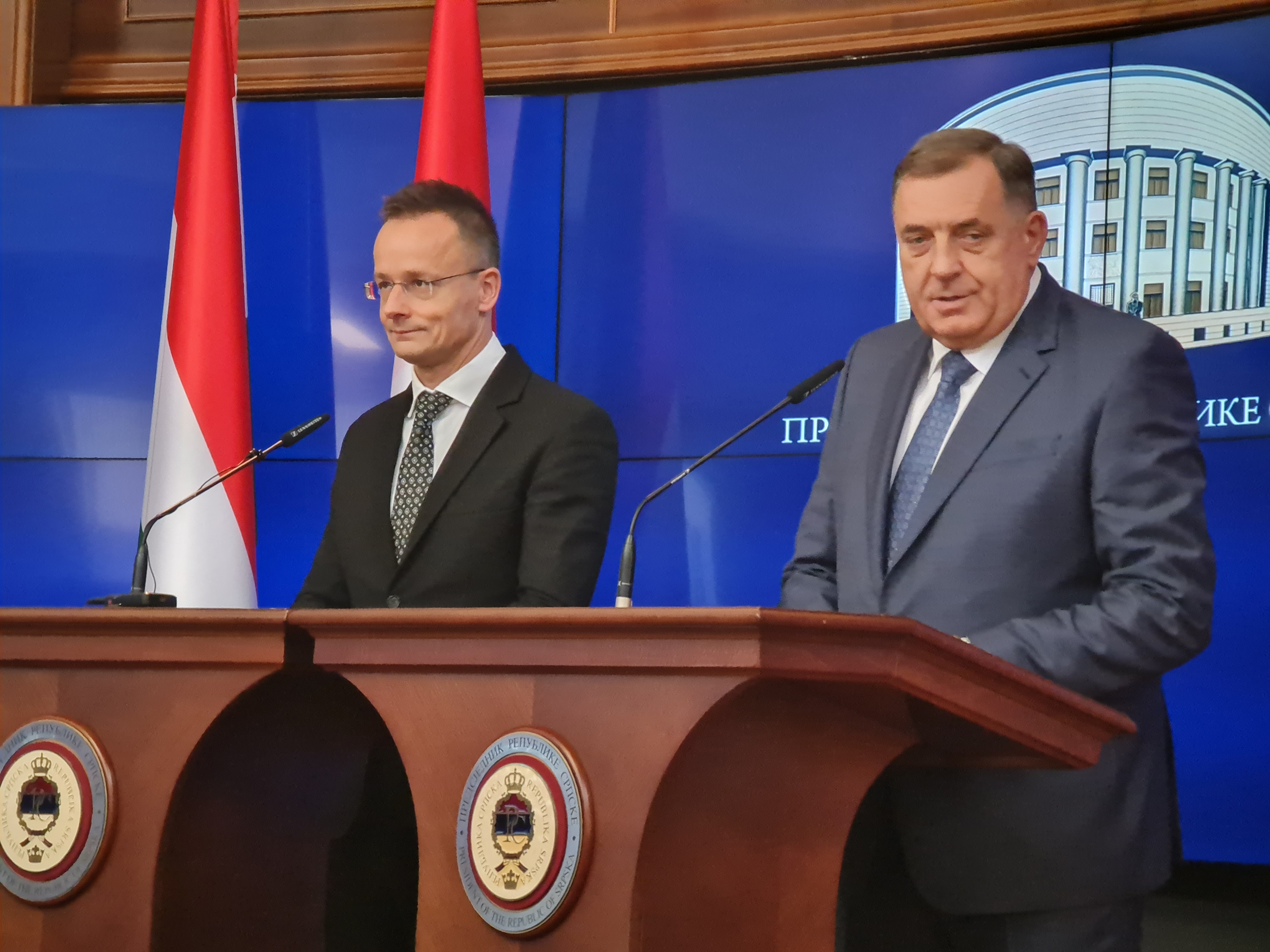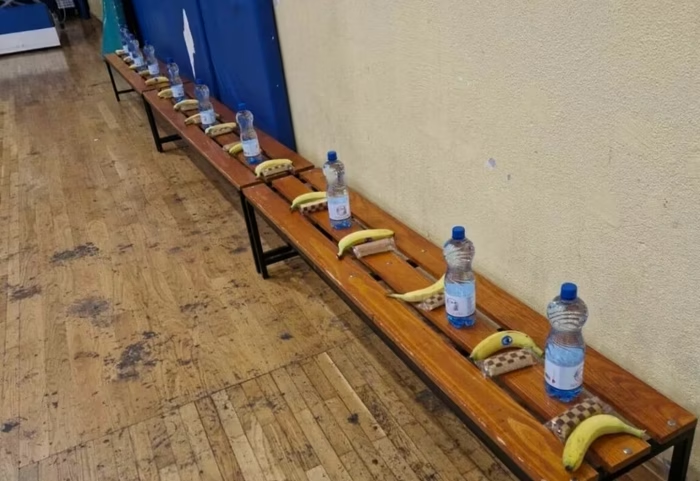Hungarian Foreign Minister Peter Szijjarto visits Banja Luka for final day of election campaign

Hungarian Foreign Minister Peter Szijjarto arrived in Banja Luka to participate in the final rally of the Alliance of Independent Social Democrats (SNSD) party on the last day of the election campaign. Before the rally, he met with Milorad Dodik, the host and President of the Republika Srpska (RS) entity, at the Palace of the Republika Srpska.
Oglas
Dodik expressed gratitude for Hungary's cooperation and discussed ways to deepen the partnership between the two regions. One key point was the expansion of Hungary's agricultural support program, currently operating in Republika Srpska municipalities, to include municipalities in the Federation of Bosnia and Herzegovina (FBiH) with a Serb majority.
Szijjarto referred to this as a "win-win situation" and revealed that Hungary is studying the possibility of expanding cooperation into the energy sector. Hungary is interested in taking over three major projects, including the construction of a wind farm, a solar power plant, and a water treatment facility, which Germany abandoned in protest of the political leadership in Republika Srpska.
Dodik emphasized that the collaboration with Hungary is not directed against anyone and offered similar cooperation terms to other entities in Bosnia and Herzegovina. He also stressed that European integration should respect the country’s constitutional framework.
Szijjarto, for his part, began by thanking Dodik for the opportunity to speak at the evening rally. He highlighted Hungary’s national interest in ensuring peace and stability in the Western Balkans, especially in light of conflicts on Hungary's eastern borders. He reaffirmed Budapest's focus on the European Union’s enlargement to the Western Balkans and criticized the EU for its slow progress.
Szijjarto pointed out that candidates from the Western Balkans have waited an average of 14 years to join the EU, calling this treatment unfair. He urged EU partners to be transparent and end the policies that have stalled enlargement.
In a strong statement, Szijjarto reiterated Hungary’s opposition to any potential EU sanctions against Republika Srpska officials. He stressed that sanctioning officials would disrespect the democratic choices of Republika Srpska's citizens, which could undermine the people's right to choose their own leadership.
"Questioning the democratic will of the people is always a dangerous thing," Szijjarto concluded.
Kakvo je tvoje mišljenje o ovome?
Učestvuj u diskusiji ili pročitaj komentare
Oglas
Kakvo je tvoje mišljenje o ovome?
Učestvuj u diskusiji ili pročitaj komentare
Oglas





 Srbija
Srbija
 Hrvatska
Hrvatska
 Slovenija
Slovenija



























































